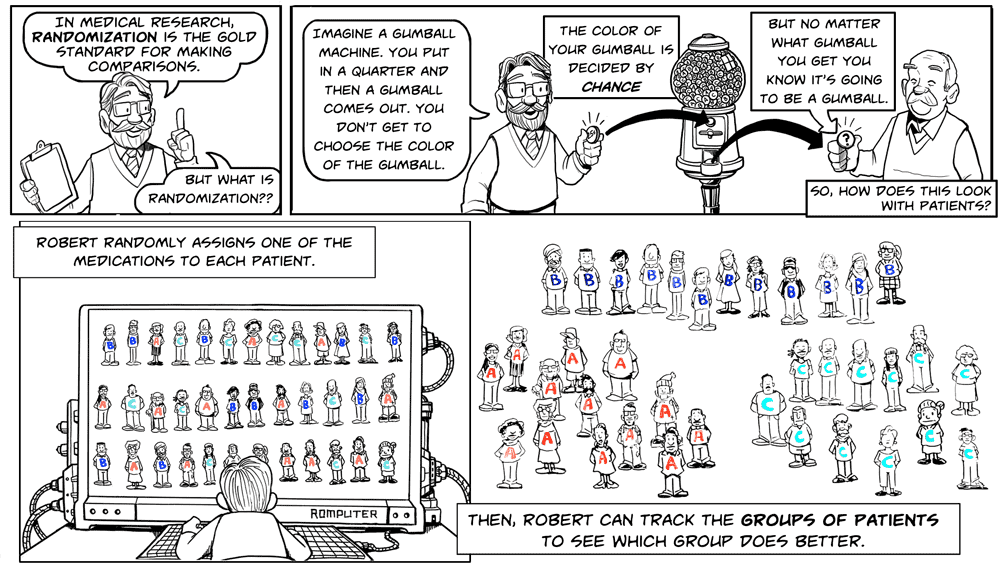In a study, each patient is assigned a medication at random.
Using randomization, you know you’ll get an approved medication, but it could be medication A, B, or C. Randomization sorts people at random into different groups.
This creates groups where the main difference is the medication that the people were prescribed.
After a patient has been assigned a medication, the doctor can change the medication if the patient does not respond as expected. In many cases, the doctor and the patient know what medication has been assigned (“non-blinded assignment”).
Randomization is a research approach that can address the limitations of medical record review. In addition to individual patients, entire clinics or hospital can be randomized. Watch a video on approaches to Research on Medical Practices.
Read about the ethical issues related to Research on Medical Practices.


